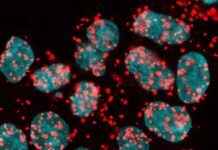For decades, the enigmatic and sinister nature of serial killers has both captivated and horrified people. Their gruesome crimes and twisted motives continue to baffle experts in the field of criminology. Delving into the psychology of a serial killer can provide insight into why they commit these horrific acts and how we can prevent them. In this article, we will explore the dark and complex mind of a serial killer and the intricate psychology of murder and mayhem.
What is a Serial Killer?
A serial killer is defined as someone who has committed three or more murders over a period of time, with a cooling-off period in between each murder. Unlike other types of killers, such as mass murderers or spree killers, serial killers usually have a specific motive or pattern to their killings.
Types of Serial Killers
There are several types of serial killers, each with their own distinct characteristics:
-
Organized Killers
Organized killers are often intelligent, socially skilled, and methodical in their killings. They carefully plan their murders and are often able to blend into society, making it difficult for law enforcement to catch them.
-
Disorganized Killers
Disorganized killers are usually impulsive, disorganized, and have a lower IQ than organized killers. They often leave behind evidence at the crime scene and have a chaotic approach to their murders.
-
Mission-Oriented Killers
Mission-oriented killers believe they are on a mission to rid the world of a certain type of person, such as prostitutes or homosexuals. They often see themselves as heroes and may have delusions or paranoid beliefs.
-
Hedonistic Killers
Hedonistic killers are motivated by pleasure or gratification. They may sexually assault or torture their victims and often keep souvenirs or trophies from their killings.
-
Power and Control Killers
Power and control killers are motivated by the need for dominance and control over their victims. They often target vulnerable individuals, such as women or children, and may derive pleasure from the act of killing.
The Psychology of a Serial Killer
The psychology of a serial killer is complex and multifaceted. There is no single cause of serial killing, but rather a combination of genetic, environmental, and psychological factors.
-
Childhood Trauma
Many serial killers have experienced childhood trauma, such as physical or sexual abuse, neglect, or abandonment. This trauma can lead to feelings of anger, frustration, and a desire for revenge, which may manifest in violent behavior later in life.
-
Lack of Empathy
Many serial killers have a lack of empathy or an inability to understand or relate to the feelings of others. This can lead to a disregard for the rights and well-being of others, and a willingness to commit violent acts without remorse.
-
Psychological Disorders
Some serial killers have been diagnosed with psychological disorders, such as antisocial personality disorder, borderline personality disorder, or schizophrenia. These disorders can lead to a lack of impulse control, poor judgment, and a distorted view of reality.
-
Fantasy and Escapism
Many serial killers have a rich fantasy life and may use their killings as a form of escapism. They may see themselves as powerful or in control during the act of killing, and use it as a way to escape from their mundane or unsatisfying lives.
-
Social Isolation
Social isolation can also be a factor in the psychology of a serial killer. Many serial killers have few or no close relationships, and may feel disconnected from society. This isolation can lead to feelings of anger or frustration, which may manifest in violent behavior.
Preventing Serial Killers
Preventing serial killers requires a combination of early intervention and treatment, law enforcement efforts, and community involvement. It is important to identify and address childhood trauma and mental health issues early on, and to provide support and resources to those who may be at risk of violent behavior.
Law enforcement efforts, such as profiling and surveillance, can also be effective in preventing serial killers. Profiling can help identify patterns and characteristics of serial killers, which can aid in their capture and prevention of future crimes. Surveillance can also be used to monitor individuals who may be at risk of violent behavior.
Community involvement is also important in preventing serial killers. This includes reporting suspicious behavior to law enforcement, providing support and resources to at-risk individuals, and promoting a culture of safety and awareness.
Conclusion
In conclusion, the mind of a serial killer is an intricate and multifaceted subject. There is no one-size-fits-all explanation for why someone becomes a serial killer. A combination of genetic, environmental, and psychological factors can contribute to their behavior.
Preventing serial killers requires a combination of early intervention and treatment, law enforcement efforts, and community involvement. By identifying and addressing risk factors early on, we can help prevent violent behavior and protect ourselves and our communities from the horrors of serial killing. With continued research and understanding of the psychology of a serial killer, we can work towards a safer and more just society.
Google News | Telegram
















